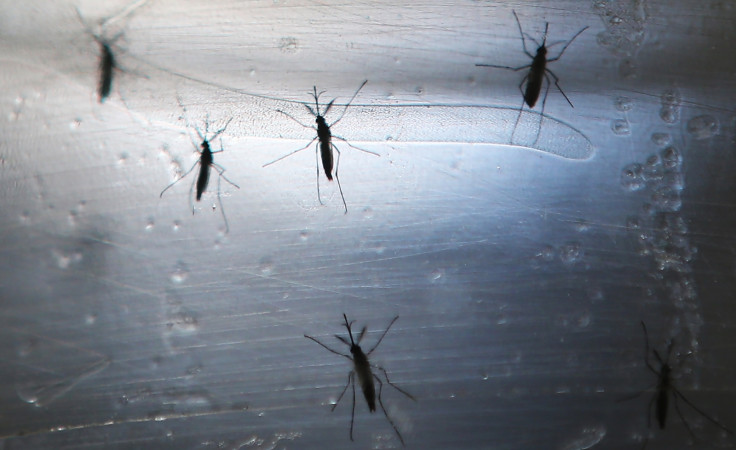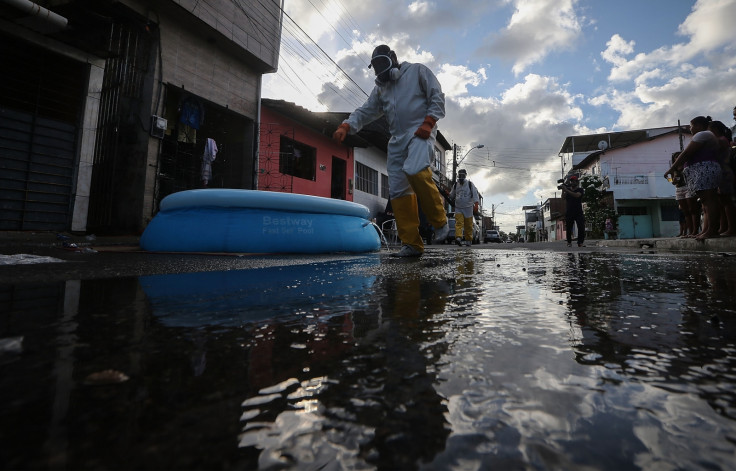Rio Olympics 2016: Does the Zika virus pose a great enough risk to cancel the Games?
Health experts have called for the Rio Olympic Games to be delayed over fears it will spread the Zika outbreak.
Tens of thousands of visitors are expected to travel to Brazil for the 2016 Olympics in Rio de Janeiro, which will begin in less than one week. But as anticipation and excitement mounts, the threat of the Zika virus hangs heavily over the Games.
Brazil is the hotbed for the latest Zika epidemic. Spread via the bite of the Aedes mosquito, most people have mild or no symptoms, but the virus can cause devastating birth defects in fetuses and lead to neurological complications in adults. The outbreak was first detected at the end of last year, and at present, there is neither a vaccine nor a cure for the virus - and authorities across the world are scrambling to come up with a solution.
The connection between Zika and microcephaly, a rare brain defect in babies, emerged at the end of last year. Since then, Brazil has confirmed more than 1,600 cases of the congenital condition that it considers related to Zika infections in mothers.

With so many tourists and athletes travelling to Brazil for the Olympics, global health organisations have issued warnings over the risks posed by the Zika virus. The World Health Organisation issued a global health emergency in February, but has not called for travel restrictions other than advising pregnant women not to travel to affected areas. The United States Centers for Disease Control has issued level 2 alert for anyone attending the Games.
Several health experts have even called for the Games to be delayed. Amir Attaran, a professor at the University of Ottawa, published a commentary in the Harvard Public Health Review suggesting the Event should be cancelled or relocated.
"But for the Games, would anyone recommend sending an extra half a million visitors into Brazil right now? Of course not: mass migration into the heart of an outbreak is a public health no-brainer," Attaran wrote.
But should we postpone the Olympic Games - or cancel them entirely - or has the risk been blown out of proportion?

Protection measures
Monika Gehner, of the World Health Organisation, says Zika poses a low risk to travellers heading to Rio - but everyone must adhere to protection measures to avoid mosquito bites.
"The risk of Zika virus for individuals travelling to the Rio Olympic and Paralympic Games is rather low, and can be managed through personal protection measures, such as using insect repellent, wearing clothes that cover the body as much as possible, and avoiding areas where there is stagnant water," Gehner says.
"For pregnant women, however, the risk is high," she says. "So we recommend they do not travel to the Games."
The WHO also advises to sleep under mosquito nets, close doors and windows and use strong insect repellent which contains DEET. As Zika can be transmitted sexually, using condoms is advised as a precaution.
Winter in Brazil
A study by the Yale School of Public Health found the Zika virus poses a negligible health threat to the international community during the Games. In a worst-case scenario, an estimated three to 37 out of the thousands of athletes, media, vendors and tourists travelling to Rio will bring the virus back to their home countries.
This is, in part, because it is winter in Brazil and mosquito activity has subsided, which reduces the risk of transmission.
"Winter in Brazil means low season for mosquitoes because they are less active, so the risk is lower than at other times in the year," Gehner says.
Location
Another factor is the distance of the epicentre of the Zika outbreak to the location of the Olympics. An editorial published in the medical journal the Lancet states there is a lower risk of infection because the majority of cases originate in the northeast of Brazil
"The Zika virus outbreak in Brazil and the associated excess of microcephaly cases are concentrated in the northeast region (92% of confirmed cases), well away from Rio in the southeast region. Zika virus transmission and associated microcephaly is occurring in the southeast region, but the incidence of microcephaly is no greater than that before the outbreak," it reads.
Even so, Gehner says it is important to ensure travellers use insect repellent - no matter which region of Brazil they visit. "The protection measures are the same. Not just for Rio, but for the five other cities in which the Games will be hosted," she says.

Number of visitors
Although it could be argued that the surge of tourists heading to Brazil for the Olympics could increase the risk the virus spreading globally, Gehner says this is not necessarily the case.
"The amount of people travelling to the Olympics actually represents less than one percent of all international travel to all countries and territories affected by Zika," Gehner says. "So it is minimal. On a public health level, the risk of exporting Zika to other countries is quite low."
The Lancet editorial supports Gehner's view. "The experience of recent host cities is that the absolute number of visitors changes little compared with previous years, because regular tourists and business travellers are discouraged from visiting during the games," it states.
Other health threats
According to the European Centre for Disease Prevention and Control, you are more likely to get fly or food poisoning than Zika - if you follow the correct precautionary measures. But while global health authorities race to understand Zika and curb the spread of the virus, an even deadlier pathogen continues to plague Brazil.
Cases of Dengue, a debilitating viral infection spread by the same Aedes mosquito, have shot up in the country. In 2015, the country registered a record 1.6 million cases of the Dengue virus, which is around three times the number the previous year.
There is no cure except bed rest and painkillers to treat the symptoms of Dengue, which include a dangerously high fever, headaches and excruciating joint pain - hence the apt descriptive name "breakbone fever". Prevention is key for both Zika and Dengue.
"Dengue has more severe effects, but personal protection measures are good for Dengue as well. If you put insect repellent on day and night, it can protect you," Gehner says. Yellow fever is also spread by the Aedes mosquito - so travellers heading to Brazil may want to consider having the vaccination beforehand, particularly if planning to visit the popular tourist destination of Iguazu Falls.
© Copyright IBTimes 2025. All rights reserved.






















